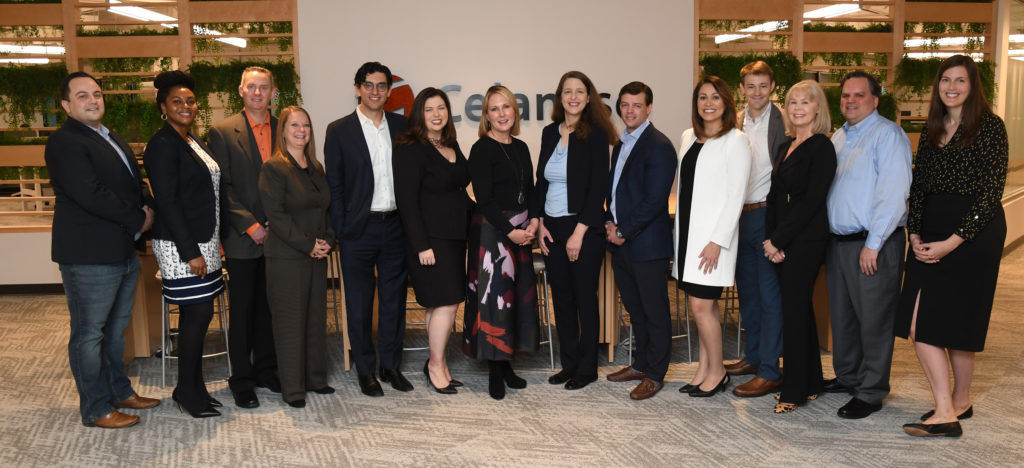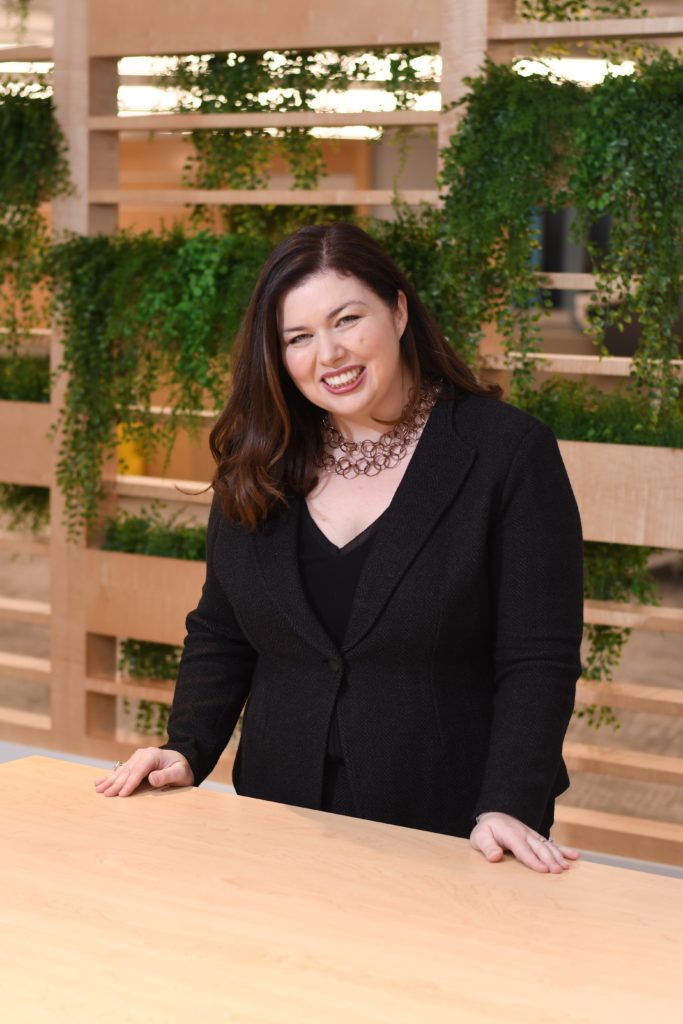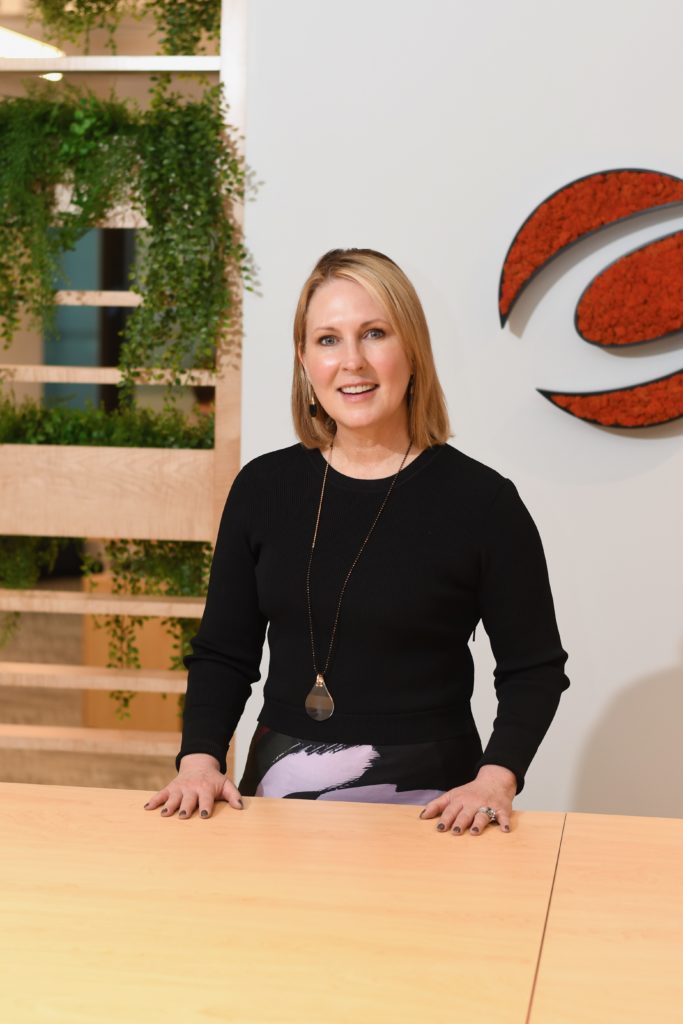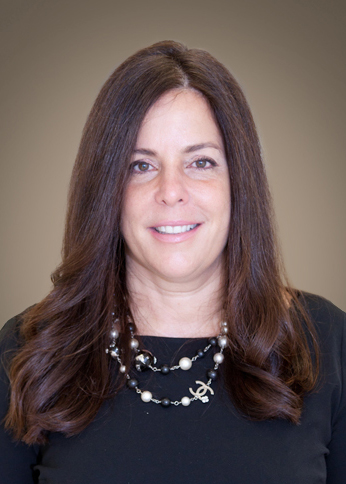
Anne Brooksher-Yen read the detailed articles in The New York Times in June 2018 about mothers and fathers from Honduras, El Salvador and Guatemala being separated from their children at the border.
The Celanese Corporation senior associate general counsel was disturbed by what she read, but she had no idea what she could do about it. Then, she read a separate article that Haynes and Boone lawyers were representing families in the detention centers pro bono. Within weeks, Celanese and the Dallas-based law firm were working together on the project.
Fast forward one year: Celanese’s new general counsel, Lynne Puckett, officially established a formal pro bono program for the company’s legal department and selected Sidley Austin as its inaugural pro bono law firm partner. Together, they have implemented a “virtual team” approach to handle matters such as grandparents’ rights cases, veteran’s disputes and immigration issues.

Puckett and Brooksher-Yen say these innovative partnerships are already being used as models for non-pro bono matters with businesses and their law firms.
“We are very proud of our unique partnerships with Sidley and Haynes and Boone,” Brooksher-Yen says. “Both relationships demonstrate that law firms and clients can work together in innovative ways on so many projects – pro bono and paying work.”
The Association of Corporate Counsel’s DFW Chapter and The Texas Lawbook are pleased to announce that the 2019 DFW Creative Partnership Award goes to Celanese and its outside counsel, Sidley Austin and Haynes and Boone.
The Creative Partnership Award honors both the in-house corporate legal department and the outside counsel they are partnering with.
“Celanese and Anne Brooksher-Yen, in short, have provided a template for how corporations and their legal departments can meaningfully serve those in need,” says Haynes and Boone partner Emily Black, who nominated Celanese, Sidley and Haynes and Boone for the award.

Celanese, Sidley and Haynes and Boone will be honored along with the other winners and finalists for the 2019 DFW Outstanding Corporate Counsel Awards Jan. 30 at the George W. Bush Institute.
“The model we used for the pro bono partnership translates to non-pro bono engagements, and, in fact, we have used it in other engagements,” says Puckett. “At its core, the partnership is about identifying the unique opportunities for our legal team members and aligning those opportunities with the resources of a firm to tackle meaningful issues for the communities in which we live and work.
“Whether its pro bono or paid legal work, engaging the right talent for the job and tailoring the legal effort to the engagement is key,” she says.
Brooksher-Yen, who has been at Celanese for three and a half years, says the company had previous connections to both firms.
“Starting off as a personal project of a few Celanese attorneys, the program blossomed to become a substantial, formal effort with participation by nearly all of Celanese’s law department members,” Brooksher-Yen says. “The program owes its successful growth to innovative collaborations between Celanese and its partner law firms, Haynes & Boone and Sidley Austin.”
“There is this underlying current of human dignity that is involved in so many of these pro bono cases. When there are legal injustices, lawyers need to step up and do something.” — Anne Brooksher-Yen
Celanese is a global technology and specialty materials company that makes intermediate chemicals that are used in the medical, automotive and electrics industries. The Irving-headquartered business employs more than 7,500 people, has $6.5 billion in revenues in 2018 and boasts a $14 billion market cap.
The legal department has a dozen lawyers in Dallas, one in Houston, one in Kentucky and 10 overseas in Amsterdam, Frankfurt and Shanghai.
The Celanese-Haynes and Boone-Sidley partnership story starts in June 2019 when the news media revealed the current administration’s newly implemented practice of separating immigrant children from their parents when they are detained coming across the border from Mexico into the U.S.
“It was so personal to me because I knew the only thing that separated me from them was the place of my birth and my education,” says Brooksher-Yen, who grew up in southern Arizona only a few miles from the Mexico border. “It was just so horrible to watch. But I am proud of how the legal profession has stepped forward.”
“We used to go into Mexico all the time for lunch and we didn’t think a thing about it,” she says.
Brooksher-Yen’s mother was “a disenchanted lawyer” who took a crash course in journalism and became a reporter. Her father was a plastic surgeon who specialized in cleft reconstructive surgery.
“My dad could have made multiple times more money had he decided to practice in Los Angeles, but he chose to live in rural Arizona,” she says. “My dad believed that everyone deserved dignity and respect, no matter their background.”
After receiving her law degree from NYU in 2006, Brooksher-Yen spent three years in the litigation practice at DLA Piper, five years at Winston & Strawn and two years at Arnold & Porter. The job at each required a lot of travel, which was difficult for the young mother of two.
In 2016, she took the senior counsel job at Celanese, where she is head of global litigation for the company.
Brooksher-Yen has a history of pro bono. In 2013, she helped represent a U.S. Marine who served from 1952 to 1955 but was dishonorably discharged because he was gay.
“The CIA experience really emphasized strategic, analytic thinking and timely, clear communication – especially when dealing with ambiguities and fast-changing situations. That training has helped me both in private practice and as GC.“ — Lynne Puckett
“The soldier had cancer and was in critically ill health and in hospice, and he simply wanted his status changed to ‘honorably discharged,’ ” she says. “It was simply a matter of personal honor. He had served his country and he wanted that peace. He died a week after his status was legally changed.
“There is this underlying current of human dignity that is involved in so many of these pro bono cases,” she says. “When there are legal injustices, lawyers need to step up and do something. We are fortunate to work at a company that supports this type of outreach, from the board of directors and CEO on down.”
‘Little things such as eating can be problematic’
After reading articles about Haynes and Boones’ efforts to represent asylum-seekers at the border, Brooksher-Yen reached out to partner Emily Black, with whom she had worked previously, to see about getting involved.
The Haynes and Boone team welcomed Brooksher-Yen into its ranks. Soon, two other Celanese lawyers joined. Then three more came aboard. The six lawyers worked on eight separate asylum cases.
The news about the legal department’s efforts spread throughout Celanese. Employees in different departments started offering assistance.
“When non-attorney Celanese colleagues expressed interest in joining, Haynes & Boone stepped up the effort in novel ways,” she says. “The firm added supply drives to enable Celanese employees to donate school supplies, clothes and groceries to needy families represented by Haynes & Boone in the separation crisis.”
Celanese employees with Spanish proficiency volunteered to serve as resources and translators for refugee families while Celanese attorneys continued to assist with asylum petitions and legal challenges.
“Different groups within Celanese adopted families and provided food, books for school, soap and other supplies,” she says. “It was basically a starter or welcome to America package. Remember, these folks come across the border with nothing. They are prohibited by U.S. law from getting jobs or working, so little things such as eating can be problematic.”
In February 2019, Celanese hired Puckett as its new general counsel. She had been the GC at manufacturer Colfax.
Puckett also has another interesting prior job listed on her resume: The Central Intelligence Agency.
In an interview with The Texas Lawbook, Puckett says she was recruited by the CIA as a career trainee.
“[I] spent a year in a largely off-site training, a year working on Latin America, and three more working on Eastern Europe during the end of the Cold War,” she says. “The time I spent in Bulgaria resulted in close friendships that I still have today. Overall, it was a great experience and, thanks to the CIA, I acquired some great skills.”
Puckett says she learned a great deal at the CIA that has helped her in her career in business and as a lawyer.
“The CIA experience really emphasized strategic, analytic thinking and timely, clear communication – especially when dealing with ambiguities and fast-changing situations,” she says. “That training has helped me both in private practice and as GC.
“By tailoring your communications to clearly explain and advise your particular audience – from the floors of a manufacturing facility to the boardroom – you can really help a corporation react appropriately and quickly to evolving situations and help create shareholder and stakeholder value,” she says. “Another thing the CIA taught me is preparedness and planning for contingencies, which is certainly helpful in the manufacturing and chemical business.”
A ‘virtual team’ making a real difference
Like Brooksher-Yen, Puckett has a passion for pro bono and public service.
One of her first efforts as the new Celanese GC was to create a formal pro bono program.
“A pro bono program is something that is very important to me personally, but more importantly, giving back to our community is a core value at Celanese,” she says. “Extending those efforts to include a legal pro bono program completely aligned with Celanese core values … provides a targeted way to give back while using the legal talent of the in-house team.”
But the Celanese legal team faced bureaucratic hurdles – from being a small team and lacking support staff to the fact that the legal department doesn’t have legal malpractice insurance.
Puckett and Brooksher-Yen said they realized they could not do it alone and needed help.
“We wanted to partner with a world-class, global law firm in our pro bono endeavor,” Puckett says. “Sidley had the right experience working with other Dallas-based Fortune 500 companies on these types of projects, and they had the right international presence to be able to engage our teams in Europe and Asia, as well. Sidley provides opportunities for our in-house attorneys to participate on cases of national significance on a wide variety of topics.”
Brooksher-Yen says the partnership with Sidley has worked perfectly, as nearly all of the Celanese legal team has gotten involved.
“Using a ‘virtual team’ approach, Celanese lawyers partnered seamlessly with Sidley lawyers to tackle a variety of cases, from individual grandparents’ rights cases to litigation on behalf of children and families in the border crisis,” she says. “To celebrate Veterans Day, nearly a dozen Celanese attorneys and staff joined Sidley to host the firm’s largest Dallas Veterans’ Legal Clinic to aid eligible veterans to obtain benefits awarded for their service in combat.”
Celanese and Sidley set up the ability to do remote meetings for veterans, allowing those lacking transportation to Sidley’s downtown offices the opportunity to obtain legal support via video conference, which expanded the scope and availability of services.
“The seamless integration of Celanese’s legal team into Sidley’s existing pro bono infrastructure allowed the Celanese participants to choose from a wide range of matters best leveraging Celanese’s expertise and resources,” Brooksher-Yen says.
Sidley had exactly what Celanese sought: a worldwide law firm committed to pro bono service with lots of options and a strong support staff.

Yvette Ostolaza, managing partner of the firm’s Dallas office, says Sidley “opened up its pro bono profile” to Celanese’s legal team with “opportunities to immediately contribute to representation from headline-grabbing litigation to assistance with family adoption.”
Besides the veterans’ clinic, a joint Sidley-Celanese team is currently working on two high-impact litigation matters, including a recent win in a precedent-setting immigration rights case.
A separate Celanese-Sidley team is handling an important veteran’s disability appeal to the U.S. Court of Appeals for Veterans Claims.
Both parties see the relationship growing.
“We couldn’t be more thrilled,” Ostolaza says. “Through the pro bono partnership with Celanese, we are able to support the community in significant ways, and our lawyers have the opportunity to partner with the in-house team in a way that transcends the normal client and law firm model.”
Puckett agrees.
“Our team has been given access to a wide variety of opportunities/projects where they can team up with Sidley’s attorneys worldwide,” she says. “This allows people to select projects that they are passionate about and that make the most of their unique skills and talents as part of a broader team effort.
“From our perspective, it’s vital to have a program that lets people work on the things that are most meaningful to them personally – otherwise, the program won’t live up to its full potential,” she says.
Puckett says the Sidley pro bono program also offers opportunities to the nonlawyers on the Celanese team to participate in projects such as the veterans’ clinic where they are supervised by practicing attorneys.
“Pro Bono an excellent way to engage a team and offer opportunities for personal and professional development beyond Celanese,” she says. “In my experience, pro bono projects really bring a sense of positive contribution and increase job satisfaction for employees as they give back on matters that are personally important to them.”
